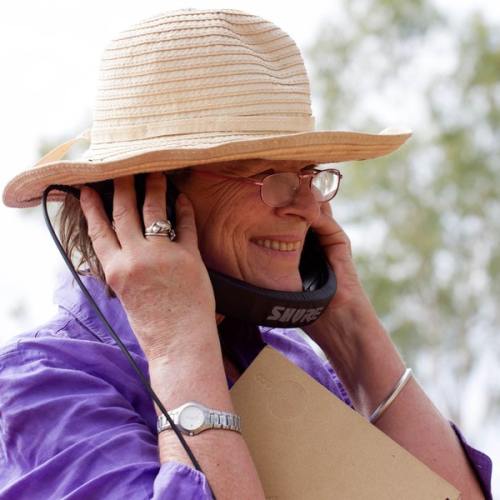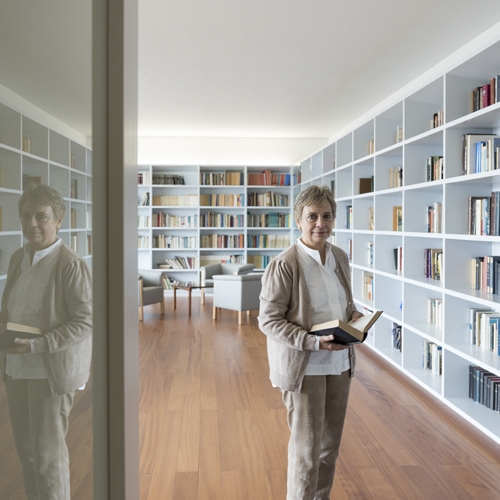Eduardo Chillida Chair 2025: James Nisbet
Euskara. Kultura. Mundura.
-
23Jun 202502Jul 2025
Frankfurt
James Nisbet will be this year’s guest researcher for the Eduardo Chillida Chair, promoted by the Etxepare Basque Institute at the Goethe Universitat Frankfurt am Maine.
James Nisbet is a Professor of Art History at the University of California, Irvine, where he holds the Chair of the Department of Art History since 2021. Since 2022, he is also the Director of the Environmental Humanities Research Center at the university. His research explores modern and contemporary art, theory, and criticism, with particular interests in environmental history, modern science, abstraction, conceptualism, and the history of photography. He will lead a couple of seminars.
One of the seminars is addressed to bachelor students. This seminar will investigate “Abstraction" in its many valances within visual arts of the twentieth and twenty-first centuries. While commonly associated with a series of experiments among the European historical avant-garde in the early twentieth century, abstraction is at once a wider reaching, yet elusive, cultural concept. In its European context, abstraction has been treated as similar to a technology, arising as a “development" or “breakthrough" on the basis of a research agenda set out by “advanced" practitioners. This history would suggest that abstraction—like the roots of Western, colonializing culture at large—was first established on the continent of Europe, before disseminating to other continents and societies across the globe. In this vein, abstraction distinguishes itself as not only free of representational content, but more so as actively rejecting the enterprise and history of representational art altogether. Working through a combination of both art historical and primary source materials, this seminar will examine the creation of abstraction as an artistic practice, while at the same time evaluating its implications as screen for the broader cultural complexities of late modernity.
Programme:
- Monday, June 23, from 9 a.m. to noon, SH 0.106
- Wednesday, June 25, from 9 a.m. to noon, SKW 5B-118
- Friday, June 27, from 9 a.m. to noon, SH 0.104
- Monday, June 30, from 9 a.m. to noon, SH 0.106
- Wednesday, July 2, from 9 a.m. to noon, SH 3.103
The other seminar is addressed to Ecocritical Art master students. Since the term was coined in the late nineteenth century, ecology has challenged scientists to think critically about the interrelation of the current physical world and its formation over time. While ecology is a relatively new branch of the natural sciences and, at a fundamental level, seeks to account for the connectedness of living and non-living beings, it nonetheless describes histories of environmental dependency and change that far exceed the moment of ecology´s own articulation. A similar dynamic informs the more recent appearance of ecological concerns in the humanities, and especially the History of Art. As an examination of the wide-ranging concept of ecology and its intersection with contemporary visual art and theory, this seminar will be structured by key questions regarding how scholars, curators, and artists should best respond to the planet´s climate crisis. Working through this growing literature on aesthetic approaches to addressing environmental media and politics, we will build towards a robust and critical dialogue about the potential for creative responses to ecology in contemporary art, paying close attention to the trajectory of recent exhibitions on the interrelated issues of environment, ecology, and climate.
Programme:
- Monday, June 23, from 1 p.m. to 4 p.m., SH 3.105
- Wednesday, June 25, from 1 p.m. to 4 p.m., SH 3.103
- Saturday, June 28, from 1 p.m. to 4 p.m., SH 1.102
- Monday, June 30, from 1 p.m. to 4 p.m., NG 2.701
- Wednesday, July 2, from 1 p.m. to 4 p.m., SP 2.03
Do you want to know more about basque art? Download this book
Eduardo Chillida Chair 2025: James Nisbet
James Nisbet will be this year’s guest researcher for the Eduardo Chillida Chair, promoted by the Etxepare Basque Institute at the Goethe Universitat Frankfurt am Maine.
James Nisbet is a Professor of Art History at the University of California, Irvine, where he holds the Chair of the Department of Art History since 2021. Since 2022, he is also the Director of the Environmental Humanities Research Center at the university. His research explores modern and contemporary art, theory, and criticism, with particular interests in environmental history, modern science, abstraction, conceptualism, and the history of photography. He will lead a couple of seminars.
One of the seminars is addressed to bachelor students. This seminar will investigate “Abstraction" in its many valances within visual arts of the twentieth and twenty-first centuries. While commonly associated with a series of experiments among the European historical avant-garde in the early twentieth century, abstraction is at once a wider reaching, yet elusive, cultural concept. In its European context, abstraction has been treated as similar to a technology, arising as a “development" or “breakthrough" on the basis of a research agenda set out by “advanced" practitioners. This history would suggest that abstraction—like the roots of Western, colonializing culture at large—was first established on the continent of Europe, before disseminating to other continents and societies across the globe. In this vein, abstraction distinguishes itself as not only free of representational content, but more so as actively rejecting the enterprise and history of representational art altogether. Working through a combination of both art historical and primary source materials, this seminar will examine the creation of abstraction as an artistic practice, while at the same time evaluating its implications as screen for the broader cultural complexities of late modernity.
Programme:
- Monday, June 23, from 9 a.m. to noon, SH 0.106
- Wednesday, June 25, from 9 a.m. to noon, SKW 5B-118
- Friday, June 27, from 9 a.m. to noon, SH 0.104
- Monday, June 30, from 9 a.m. to noon, SH 0.106
- Wednesday, July 2, from 9 a.m. to noon, SH 3.103
The other seminar is addressed to Ecocritical Art master students. Since the term was coined in the late nineteenth century, ecology has challenged scientists to think critically about the interrelation of the current physical world and its formation over time. While ecology is a relatively new branch of the natural sciences and, at a fundamental level, seeks to account for the connectedness of living and non-living beings, it nonetheless describes histories of environmental dependency and change that far exceed the moment of ecology´s own articulation. A similar dynamic informs the more recent appearance of ecological concerns in the humanities, and especially the History of Art. As an examination of the wide-ranging concept of ecology and its intersection with contemporary visual art and theory, this seminar will be structured by key questions regarding how scholars, curators, and artists should best respond to the planet´s climate crisis. Working through this growing literature on aesthetic approaches to addressing environmental media and politics, we will build towards a robust and critical dialogue about the potential for creative responses to ecology in contemporary art, paying close attention to the trajectory of recent exhibitions on the interrelated issues of environment, ecology, and climate.
Programme:
- Monday, June 23, from 1 p.m. to 4 p.m., SH 3.105
- Wednesday, June 25, from 1 p.m. to 4 p.m., SH 3.103
- Saturday, June 28, from 1 p.m. to 4 p.m., SH 1.102
- Monday, June 30, from 1 p.m. to 4 p.m., NG 2.701
- Wednesday, July 2, from 1 p.m. to 4 p.m., SP 2.03




